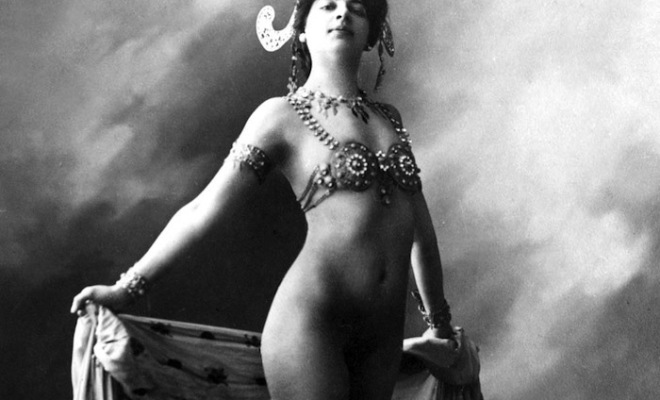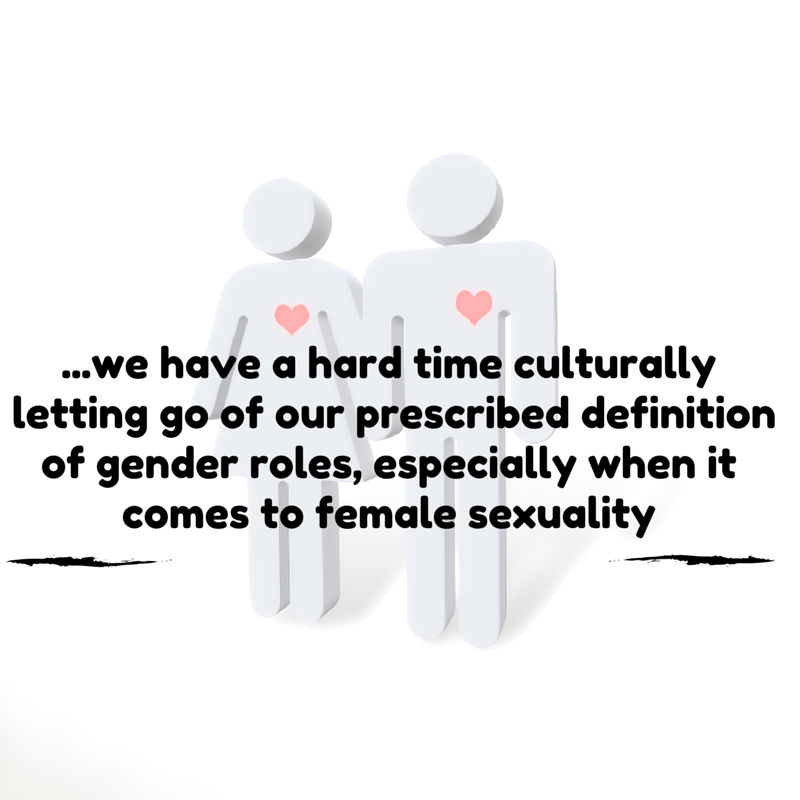
50 Shades of Grey: Female Sexuality, Control and Gender Archetypes
The popular blockbuster that globally captured the hearts and libidos of many is sort of messed up…and it has nothing to do with its on the surface sexual and bondage narrative.
Sure there’s sex and ropes and spanking in 50 Shades of Grey, which would be risque if all you know about sex is lights-off missionary. And you can find many thought pieces on how it’s about female power fantasy, the celebration of female sexuality, childhood abuse, etc, etc. But outside of very, very mild BDSM and the cliche “powerful man, innocent young woman” story that years of cinema have actualized, it’s really nothing different than what’s graced our film over the years when it comes to portraying human sexuality and gender roles. The soundtrack does help get your blood flowing though, so I’ll give it that.
Its underlying popularity among a female fan-base is undoubtedly speaking to the fact that either A). women are extremely horny B). women are largely undersexed and in pursuit of the elusive orgasm C). both. ($500 for C, Alex. Ding, ding!)
But a core issue and message that we might have missed among all the steamy promotion that hasn’t seem to have been talked about yet is that 50 Shades of Grey frames female sexuality as something a man gives her verses something she pursues herself while continuing to push traditional gender roles in the context of a heterosexual relationship.
Broad Translation: It’s a man’s world even when it comes to your vagina, ladies.
The movie wastes no time setting this up, showing a very frumpy dressed young Anastasia, ponytail and bangs included, walking into the powerful office of Mr. Grey where he stands overlooking the Seattle skyline for her scheduled interview. She’s very flustered and noticeably turned on — cheeks blushing, heavy breathing — and the next couple of minutes sets up what is to be their future relationship. After the interview, in some very debatable clever script writing, we get to see her partake in what perhaps is her first on-screen orgasm as she steps outside, tilting her head to the sky and opening her mouth to take in the outside pouring rain; Mr. Grey just figuratively made it rain y’all.
A thesis could be written around that scene, and I’m not going to get my panties in a knot over it outside of too-quick character development, the proverbial premature ejaculation when it comes to story development. Anastasia Steele and Christian Grey are literary robots, representing every stereotype you might be able to think of when it comes to gender roles: innocent, young woman; wealthy white (emphasis on white) male; abused, now emotionally inept man; broken home daughter…
That’s all fine and dandy. Childhood sucks. Pheromones exist. Power and nice suits are attractive. Sometimes we just want to be saved.
What I don’t like is the moment where we learn about Mr. Grey’s “singular tastes” — i.e. he likes some freaky shit, and it is revealed that our pretty little heroine is a virgin.

Eye roll.
This, of course, is no shock. You can’t effectively dominate what has already been dominated. And you can’t open a woman’s eyes to her sexuality, which is Christian’s core role as a powerful, sexualized man, if she’s already done it herself.
Mr. Grey’s response is immediate. “Well, we need to fix that,” he says, scooping Anastasia up and thrusting a contemporary Rhet Butler on her. Here, certain groups might be inclined to say that Anastatia didn’t consent and therefore, it’s rape. I’ll save that argument for a different debate and posit that it is exactly what Anastatia wants, having realized once she tilted her head to that sky in an earlier scene and let the rain fall in her mouth, that she’s a sexual creature and Mr. Grey is the man she has chosen to satisfy that urge.
The archetypes narrative get better. Once Christian has effectively sexualized Anastasia, which we see in her hungry want to have her wrists bound again in a very amateur bedroom scene (it involves a tie so don’t get all silly here), he introduces her to his contract. Instead of immediately saying yes, she sits on it, making the “used-to-getting-what-he-wants-when-he-wants it” Grey very impatient. This shift from clumsy, ponytail wearing, “What’s that tie for??” Anastasia Steele to, “I’m going to make a billionaire sweat,” is quite interesting. Where it’s not in Anastasia’s moral construct to dominate sexually, it’s in her construct to dominate mentally and emotionally.
Once, she finally agrees to go over the contract with Christian boardroom style in what is arguably the best scene of the movie, this time her dress has changed from frumpy school-girl to power-house business. This directorial choice (a woman I’ll add) is making a clear statement here: where Anastatia was once a sexual submissive, now she is the sexual dominator.
 And her domination of Christian climaxes as she turns Mr. Grey into Mr. Blue when she leads him to the point of excitement yet doesn’t deliver at his invitation to commence the contract that night. “Right here on this table,” she purrs seductively, a close-up of lip biting that at this point has become Christian’s metaphorical handicap — he gets all SWV weak in the knees when he sees it, and the director makes sure we all know it. (Annnnd cue close-up of biting lip now pan to hot and heavy Grey. Repeat every 10 minutes.)
And her domination of Christian climaxes as she turns Mr. Grey into Mr. Blue when she leads him to the point of excitement yet doesn’t deliver at his invitation to commence the contract that night. “Right here on this table,” she purrs seductively, a close-up of lip biting that at this point has become Christian’s metaphorical handicap — he gets all SWV weak in the knees when he sees it, and the director makes sure we all know it. (Annnnd cue close-up of biting lip now pan to hot and heavy Grey. Repeat every 10 minutes.)
But then, right on the cusp of character evolution and self-actualization of Anastasia that we are all rooting for, the story shifts. Anastasia’s character is written back into a trope of submission and the “I just want to love you/let me in” role and the rest of the story turns into a pull and tug of a relationship that eventually falls apart on the crescendo of a punishment scene solicited by Anastasia so she can fully see just how screwed up her boyfriend is. (I’ll add that Anastatia never signed the contract so her character could still have become a domme if only we would allow it to be. But that would fall outside of our understanding of a likeable heroine. Because, in the end, we all want it to be about love, which is what Anastasia represents.)
I’m not shocked that the world responded how they did, finding intrigue in a character that wanted to be dominated, wanted to be pushed to boundaries, taught even. A man takes our virginity. A man shows us our orgasm. A man allows us to explore our sexuality even when we may be ashamed of it. So the way to uncovering our sexuality has been traditionally at the hands of the male if it’s a heterosexual relationship. Yes, there are many counters to that above statement, but the appearance of this theme in cultural symbols like our film and “literature” only stands to remind us that they still exist.
What it doesn’t teach us about sex, 50 Shades of Grey does teach us that we have a hard time culturally letting go of our prescribed definition of gender roles, especially when it comes to female sexuality. Is this the biology of things and an evolutionary trail that we can’t fight? Do we need our men to sexualize us first? Can a woman be both sinner and saint? Can a man be both sexual beast and emotionally vulnerable?
The answer is yes, and until a blockbuster narrative puts the woman in control of her self-discovery verses relegating her to an either/or sinner or saint archetype, and until we allow our Christian Grey’s to let go of control and represent more than just wealth and power (men have feelings too!), we will have a hard time accepting that both men and women can be dynamic and self-aware enough to occupy and move between both spaces on the gender role spectrum yet still fulfill traditional roles.
But until then, if our men are teaching our women, who’s teaching them?
What are your thoughts on 50 Shades of Grey?


